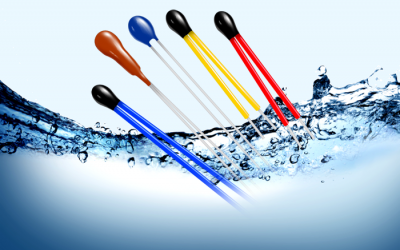Thermistors, Thermocouples, and RTDs: Which Sensor is Best for You?When it comes to temperature measurement, selecting the right sensor is critical for obtaining accurate, reliable data. As a data logger manufacturer, we understand that choosing the appropriate sensor for your application can directly impact the success of your temperature monitoring. Here, we’ll explore the key differences between thermistors, thermocouples, and resistance temperature detectors (RTDs), helping you choose the right data logger for your needs.Thermistors What is a Thermistor? A thermistor is a temperature-sensitive resistor that exhibits a significant change in resistance with temperature changes. Typically made from ceramic or polymer materials, thermistors are highly sensitive and accurate within a limited temperature range.Advantages:• High Sensitivity: Thermistors provide precise readings within their operational range.• Cost-Effective: They are affordable and easy to integrate into various systems.• Compact Size: Their small form factor allows for use in tight spaces. Limitations:• Limited Temperature Range: Generally, thermistors are effective within -50°C to 150°C.• Non-linear Response: The r...

